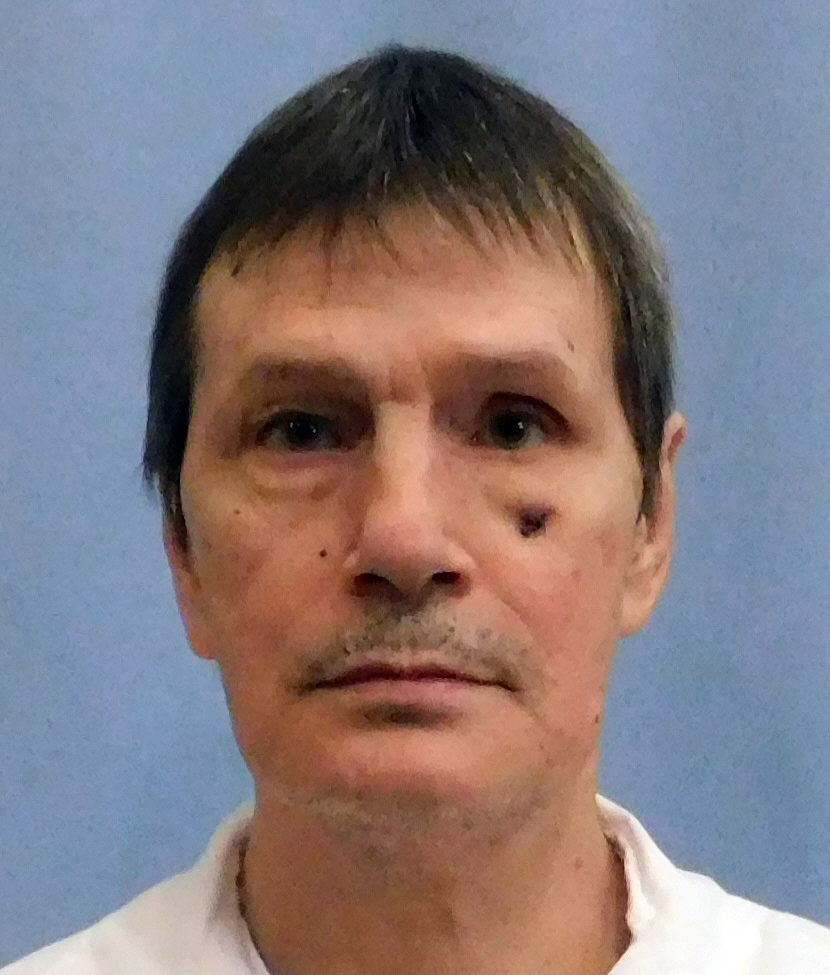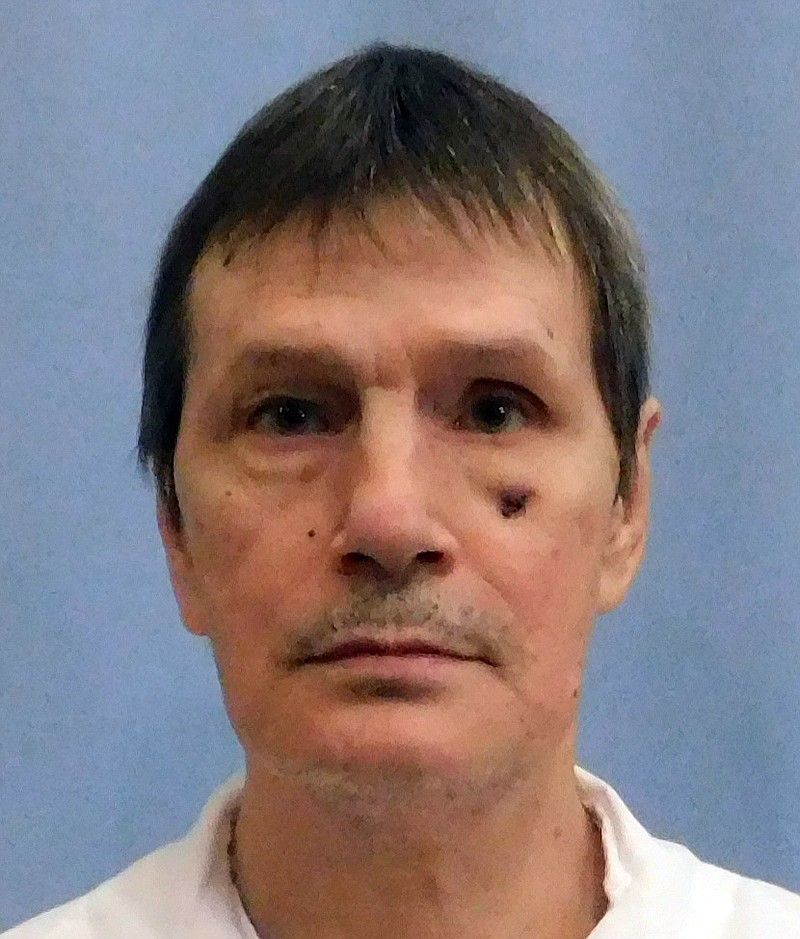 This image provided by the Alabama Department of Corrections shows Doyle Lee Hamm, an inmate scheduled to be executed Thursday, Feb. 22, 2018 in Alabama. Alabama is set to execute Hamm, who argues his past drug use and cancer have too badly damaged his veins and will make the lethal injection unconstitutionally painful. (Alabama Department of Corrections via AP)
This image provided by the Alabama Department of Corrections shows Doyle Lee Hamm, an inmate scheduled to be executed Thursday, Feb. 22, 2018 in Alabama. Alabama is set to execute Hamm, who argues his past drug use and cancer have too badly damaged his veins and will make the lethal injection unconstitutionally painful. (Alabama Department of Corrections via AP)MONTGOMERY, Ala. (AP) - Alabama officials on Thursday postponed a scheduled lethal injection of an inmate who had argued that his veins were severely compromised by illness, saying there was not enough time to prepare the inmate before the death warrant expired at midnight.
The Department of Corrections announced at 11:35 p.m. that the execution of Doyle Lee Hamm, 61, would not proceed, despite an earlier green light from the U.S. Supreme Court. Corrections spokesman Bob Horton said there was not enough time to prepare Hamm before midnight, but he did not elaborate. The prison commissioner was scheduled to brief reporters later.
Bernard Harcourt, Hamm's attorney, argued that the inmate's veins had been severely compromised from cancer, hepatitis C and former drug use and that it would be difficult to administer the drugs by lethal injection. Harcourt wrote in court filings that Hamm's health problems increased the "chances of a botched, painful, and bloody execution."
Hamm was diagnosed with B-cell lymphoma in 2014. Harcourt said there was evidence the blood cancer had progressed, while the state contended he was in remission.
State prison officials told courts last week that they intended to connect the line to a vein in his hips, legs or feet after a medical review ordered by a federal judge found that Hamm had no easily usable veins in his upper extremities.
Hamm was convicted in the 1987 killing of motel clerk Patrick Cunningham. Cunningham was shot once in the head while working an overnight shift at a Cullman motel. Police said $410 was taken during the robbery. Hamm gave police a confession and he was convicted after two accomplices testified against him in exchange for being allowed to plead guilty to lesser offenses, according to court documents.
The U.S. Supreme Court ruled about 9 p.m. that the execution could proceed, after delaying it for three hours to consider the final appeals. Justices Ruth Bader Ginsburg and Sonia Sotomayor dissented from the decision. Justice Stephen Breyer wrote that he would reconsider the constitutionality of the death penalty itself.
Executions were also scheduled to take place Thursday in Texas and Florida.
In Florida, Eric Scott Branch, 47, was pronounced dead at 7:05 p.m. Thursday after a lethal injection at Florida State Prison. Branch was convicted of the rape and fatal beating of University of West Florida student Susan Morris, 21, whose naked body was found buried in a shallow grave near a nature trail.
Branch was sentenced under Florida's old capital punishment system, which was ruled unconstitutional by the U.S. Supreme Court. However, the Florida Supreme Court ruled that the state's new system of sentencing does not apply to inmates sentenced to death before 2002.
In Texas, Gov. Greg Abbott accepted the recommendation of the state's parole board and granted clemency for Thomas "Bart" Whitaker, on death row for masterminding the fatal shootings of his mother and brother at their suburban Houston home in 2003. Whitaker's father, Kent, says he forgives his son, and the state parole board recommended that Abbott commute the sentence to life in prison.
